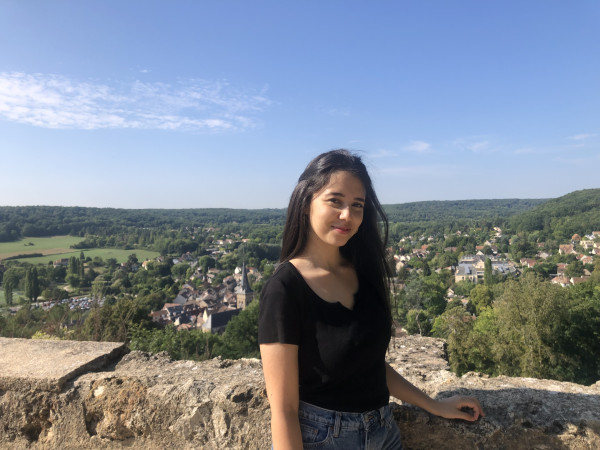Hela Mhiri
Interview by Nicola Nosengo, NCCR MARVEL on 25 September 2024
Have you always been interested in science?
Yes, it was an early passion, because both my parents are scientists. In high school I joined science clubs and tried different things. But I did not immediately choose physics. I did some coding and robotics initially and played with mechanics and electronics. Later I became more interested in theoretical science.

Hela Mhiri
How did you hear about the INSPIRE Potentials Program?
During my early research experiences in Paris, I was going to summer schools and conferences and I met Zoë Holmes when she saw a poster of my work. I talked to her and asked her if I could join her group for my master thesis, and then it was her who suggested that I apply for this fellowship.
What is the topic of your master’s project?
I am studying the optimization landscape of variational quantum algorithms. These are hybrid classical-quantum algorithms where you evolve an initial state under some parameterized unitary evolution, and then you make measurements to estimate some loss function that you optimize classically and plug in the updated parameters to the quantum computer to determine the next unitary evolution. We keep iterating this process until convergence. The loss functions that come from these measurements of quantum systems are highly non-convex functions measuring overlaps in the exponentially big Hilbert space, which means they have multiple local minima and flat landscape on average; hence we must study their behavior to understand how we can best train them. If you initialize the parameters randomly when starting the optimization loop, you have the problem of running into plateaus that prevent you from finding the optimal solution. A way to avoid the problem is to have other initialization strategies, using so-called “warm starting”, and we are looking specifically into theoretical guarantees of warm starting for variational quantum algorithms. For the moment I am doing theoretical analysis but also planning to perform numerical experiments and simulations before the end of the internship. You can use these variational quantum algorithms to simulate quantum systems. What I am doing now is more about the algorithms at the general level, but we are also looking into how they could be applied to simulate materials with quantum chemistry. The internship will end in October. We do have some nice results, but we still need to complete their interpretation and support our findings with numerical simulations.
Do you think women face specific challenges in the sciences?
I can’t say that I am facing big challenges personally. But in the field, there is a great unbalance between men and women, even though my own supervisor is a woman.
Any advice for young girls interested in science?
I think internships are very important. At first, when you start looking for an internship, it can be frustrating, because you’ll be sending many applications and people may not respond, but this is how it works. But an internship is a good way to discover different topics and discover what you are interested. It’s a very complete experience.
What are your plans for the future?
I will do a PhD at Sorbonne in Paris in Sorbonne, with Zoë as a co-supervisor. After that, I would really like to keep doing research, but that could be either in academia or in industry R&D.
